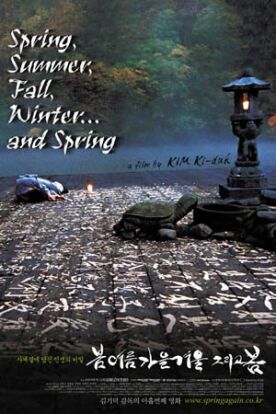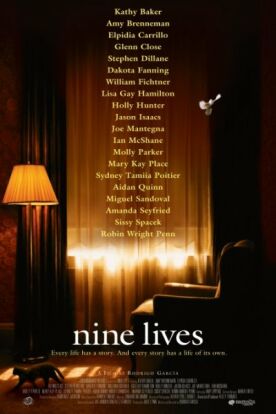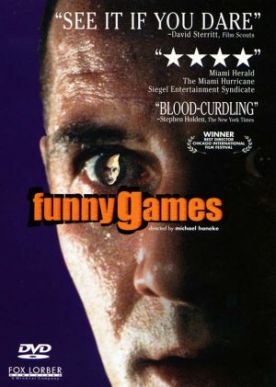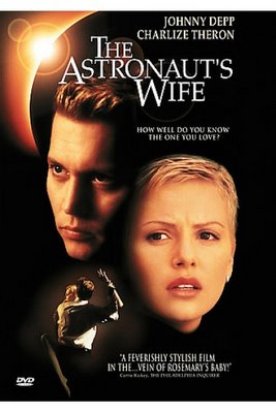Celebration, The
The Celebration is a film directed and co-written by Thomas Vinterberg, a Danish director who has teamed up with Lars Von Trier, a fellow Dane, to issue a manifesto called Dogma 95. Everybody, including Mr Vinterberg himself, seems to agree that this is little more than a publicity stunt, and Vinterberg claims that in the future he will not consider himself bound by the manifesto’s self-imposed limitations, which require him to use only a hand-held camera, natural light, location shots and even props found on location. This kind of gimmickry would scarcely be worth mentioning, but for the fact that we may take it as a kind of postmodern gesture, a jokey and whimsical substitute for some notionally more substantive but phantom criticism of Hollywood slickness. As we critics have reason to know, it is very difficult to make a purely moral or aesthetic case against slickness.
The manifesto may also help to widen our perspective on what might otherwise look too much like one of that kind of family drama in which the Scandinavians seem to specialize. There are echoes of Strindberg and Bergman here, and even a quotation from Ibsen’s Ghosts offered not as a quotation but with apparent unconsciousness of its provenance to apply to the family we are introduced to here, which is here foregathering at a family-owned luxury hotel to celebrate the sixtieth birthday of its silver-haired patriarch, Helge (Henning Moritzen). We learn two things straightaway about the recent history of this family. One daughter, Linda, has recently committed suicide and one son, Michael (Thomas Bo Larsen) is in disgrace with Papa for something he said while drunk at the last family gathering.
Michael is a violent-tempered ruffian who treats his poor wife, Mette, and his children abominably, but he is desperate to mend his fences with daddy. Told on arrival that his name is not on the guest list, Michael alternately bullies and wheedles in order to get a room in the hotel. Only after his brother and Linda’s twin, Christian (Ulrich Thomsen), intercedes for him does he get the room. Meanwhile, his and Christian’s surviving sister, Helene (Paprika Steen), is playing an old family game, “getting warmer,” in the room where Linda died and finding a suicide note, hitherto overlooked, which for some reason she does not want to read and which she proceeds to hide in her tube of prescription tranquilizers.
There are various funny episodes—filmed in the cinema vérité style that the hand-held camera always suggests—on the way to getting the extended family gathered around the hotel’s banqueting table. But when Christian stands up to propose the eldest son’s toast to his father he reveals that both he and his twin sister had been repeatedly raped by the old man when they were children. From this point on the film is really about the embarrassment of such a revelation and the comedy it generates. It is Ibsen in clown make-up. At first Christian’s words are greeted with stunned silence, except for one poor uncle or cousin who absent-mindedly starts to clap until he realizes that everyone else is paralyzed. Christian then leaves the room, and everyone tries to think of excuses to ignore him and continue with the party. Finally, another sister, Helene, stands up to deny that there is any truth in Christian’s words— “and I ought to know.”
It had been Christian’s intention to return to his home in Paris as soon as he had dropped his bombshell, but the hotel chef, a childhood friend, urges him to stay and dispatches servants to steal the guests’ car keys so that no one can leave; everyone must face up to this horrifying fact that no one wants to face up to. Christian then returns to the table just as grandpa is telling for the second time a story which must be as old in Danish as it is in English, about the advice he once gave to young Helge about how to impress girls at the beach. “Just put a potato down your bathing suit,” he had told him, and all the girls were sure to want to go out with him. Later, when he asked him what success he had had with this device, Helge had said that, so far from flocking to him, all the girls had shunned him. It was then that grandpa explained that he was supposed to put the potato down the front of the bathing suit, not the back.
The irony of the bad joke, which grandpa thinks is so risqué in front of the ladies, in a context where the most appalling revelation has been ignored, not least by grandpa himself, is complex and satisfying, as of course is the charming little folk song that grandmother sings in blissful unconsciousness of her family’s being torn apart around her. Christian keeps popping up like a Whack-a-Mole with further charges against his father—and Michael takes it upon himself and a couple of burly hotel servants to do the whacking. But gradually, the truth begins to dawn, and the long-suppressed anger and hatred that divides the family begins to focus itself on its proper object.
Yet the picture never quite becomes, as we naturally expect it to do, a mere psychological study—or even the ideological counterblast against “patriarchy” that we might suppose it could hardly help being. This is because the comedy and the horror never go their separate ways but remain locked together all the way to the end, as they do in King Lear. The result is a surprisingly affirmative film about a very negative—and, one would have thought, an even more hackneyed—subject. We are left after the final scene with a sense of the family’s incredible resilience and the ability of love among its remaining members to overcome even the most appalling psychic wounds. That is the kind of affirmation that we might have hoped for in Happiness or Your Friends and Neighbors—but that, as Dogma 95 might have warned us, we are unlikely ever to get from Hollywood.
Discover more from James Bowman
Subscribe to get the latest posts to your email.








